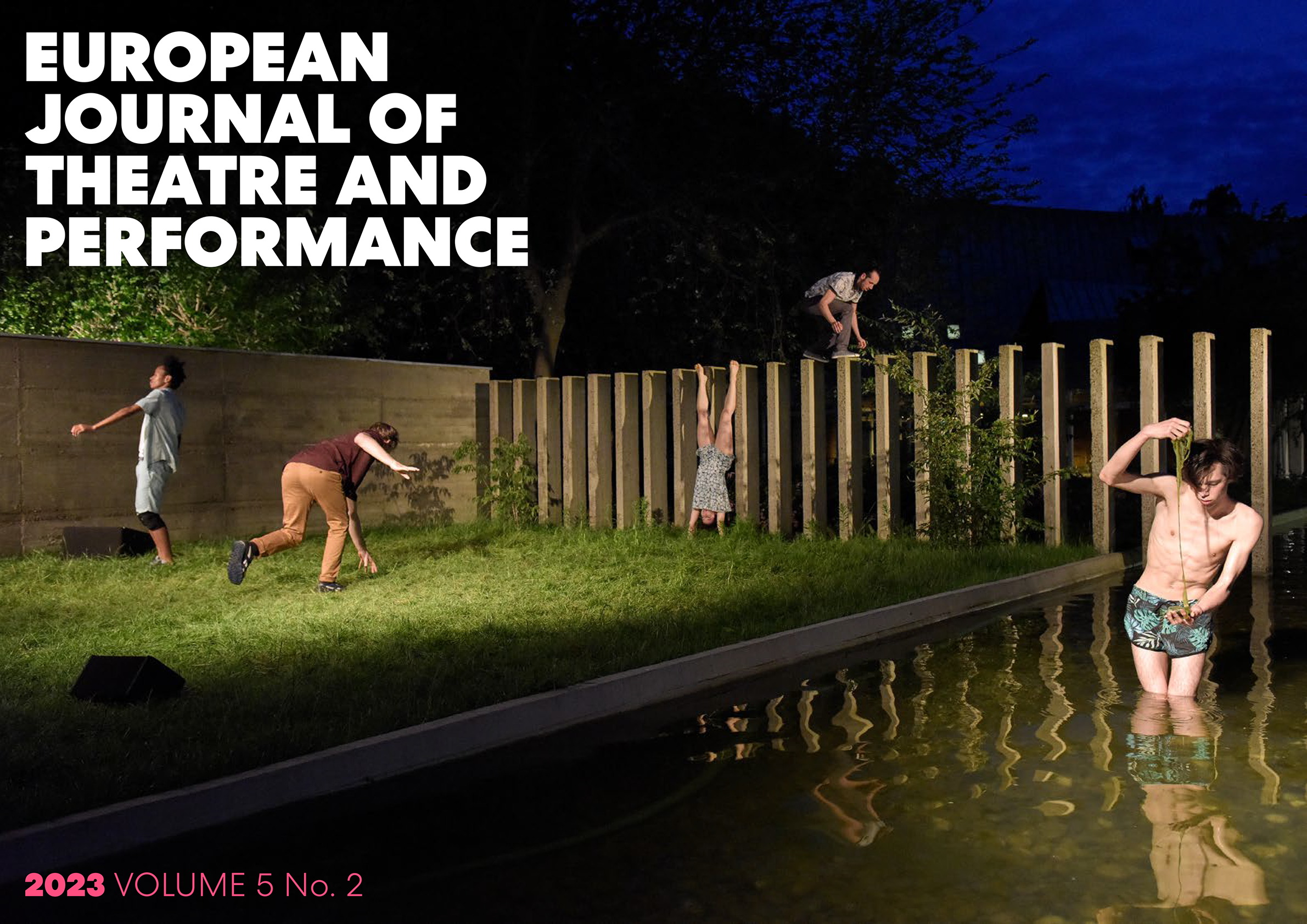Fluidity of Feeling: Water, Gender, and the Political Potential of In-difference in Travis Alabanza’s Overflow
DOI:
https://doi.org/10.21827/ejtp.6.42247Keywords:
affect, transgender, water, feminism, audienceAbstract
Travis Alabanza’s play Overflow (2020) follows the story of Rosie, a transgender woman trapped inside a public bathroom as she waits for the threat of transphobic violence to pass. This article argues that the political efficacy of the production can be traced through three interconnected strands of fluidity. First, it pays attention to the physical presence of water on stage and how its fluid materiality disrupts binaries and structures of gender. Second, it argues that Rosie’s experiences of the nightclub toilet subvert the rigidity of the ways that public toilets police gender hegemonies through encapsulating transfeminist solidarity and gender fluidity. Third, it turns to audience responses to analyse the feeling of indifference that some audience members expressed. I argue that indifference can be understood as a fluid affect that acts as a way of sustaining multiple states of being and feeling, and it aims to reframe indifference as a politically useful affect.
Published
Issue
Section
Copyright (c) 2023 Isabel Stuart

This work is licensed under a Creative Commons Attribution 4.0 International License.

